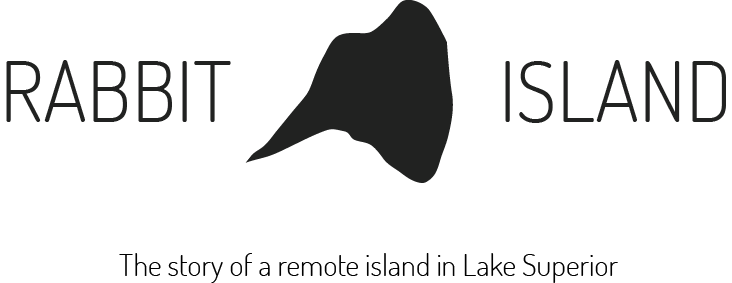The first two artists-in-residence of 2015 arrived on the island on June 21st. On their first night they were greeted by gale-force winds from the west, hitting main camp head on—a proper Lake Superior hello. Such is life on a remote island.
Composer Eugene Birman (left), received his M.M. in Music Composition from the Juilliard School, a B.A. in Economics from Columbia University, and this spring received his D.Phil in Musical Composition from Oxford University. Scott Diel (right) is an American-born writer and librettist based in Tallinn, Estonia, who has freelanced widely. The two have previously collaborated on several operas to critical acclaim. Their most recent work, Nostra Culpa, eclectically weaves together the global debate surrounding post-financial crash austerity and a Twitter feud between a Nobel laureate columnist from the New York Times and the president of Estonia. Such unlikely inspiration results from “a desire to step away from the formal opera genre and engage a wider audience with classical music that investigates contemporary issues.” The duo’s past projects have received attention from world media outlets including CNN, BBC World TV, NPR, and many others.
Over the past two weeks on Rabbit Island they have been working on their project, STATE OF THE UNION, a new multi-movement, multi-voice opera that engages with issues of environmental sustainability, economic inequality, satire, and the elusive solutions which are often lost in a sea of voices. Inspired by their time on the island they have shared that a singular voice will emerge in one of the opera’s movements, a voice with the potential to guide us from the wilderness. STATE OF THE UNION promises a groundbreaking approach to classical
music, and sets out to create a timely, vitally relevant message.
Recent discussions between the two residents and Rabbit Island co-founders Rob Gorski and Andrew Ranville have taken place both on and off the island. In an excerpt from email correspondences leading up to their arrival, Rob shared:
“I’m really excited for your
guys’ effort. Your idea–or at least my interpretation of it–has opened
up several new avenues for my thinking already. It pushes forward the genre of classical music in general and takes a classical art form to a new subject: Man’s relationship to his natural environment in the context of modern understanding. Historically, classical opera has dealt with mythology,
human relationships, power, politics, love, death, and other similar concepts. While certainly
classic themes, these seem to be a layer or two below the fundamental
rules of the game we are all now realizing, as well as our absolute
relationship to them.”
Eugene responded:
“I think the clear distinction is also that opera has almost always worked in allegory, that themes have been represented but not presented as they are, that characters themselves serve as parables but not personalities. We are not only removing the idea of characters entirely, but using the entire genre of opera as a character itself–or, as I see in Scott’s writing, a conscience and a voice. The very safe separation of message and representation as it generally is in opera is removed, and we have only the very clear libretto which hides behind nothing.”
“I may have mentioned it to you during our phone chat, but SOTU’s relationship to the very beginning of opera is quite strong, in that opera was invented as a genre for communicating revolutionary ideas. But political and conventional limitations on the form were nevertheless too limiting, so it was quickly subsumed into “music as entertainment.” SOTU is commentary on that role as well, for while the piece will be entertaining in many ways, I see its purpose as bringing opera back to what it was meant to be… as a gesamtkunstwerk with a specific purpose, not just one that brings together art forms for the delight of audiences. I think that the genre needs this shake-up because it has, with each new addition, become more and more anachronistic and baroque–ultimately, irrelevant and silly.”
“What Scott will do in the libretto is link social issues to the greater issue at hand which, as you alluded to in your email, was an understanding elusive to past generations of composers because we simply weren’t aware of what we were doing to our planet. But it is all related, of course. Writing opera today allows us to finally make that leap.”
While on the island–between gathering firewood, stoking the sauna to 193 degrees, performing daily ablutions in the lake, and mastering campfire pizza–Eugene and Scott acknowledged that this is the first residency they have
participated in together, writing and composing in real-time. This process of direct collaboration has influenced their project by distilling and sharpening the opera’s message. Eugene, working in a way that is increasingly rare in circles of contemporary composers, has been hand-writing the composition at the shelter’s dinner table in response to Scott’s words and the wilderness environment surrounding them. All the while, they balance
the themes of their project with the necessary rituals of daily life in a place that occasionally heralds a damp awaking after a western storm.
It is a remarkable thing to consider: An opera addressing contemporary world issues is being written on a remote island in Lake Superior. We are thrilled to have Eugene and Scott in residence and are excited to share STATE OF THE UNION when it is complete.
